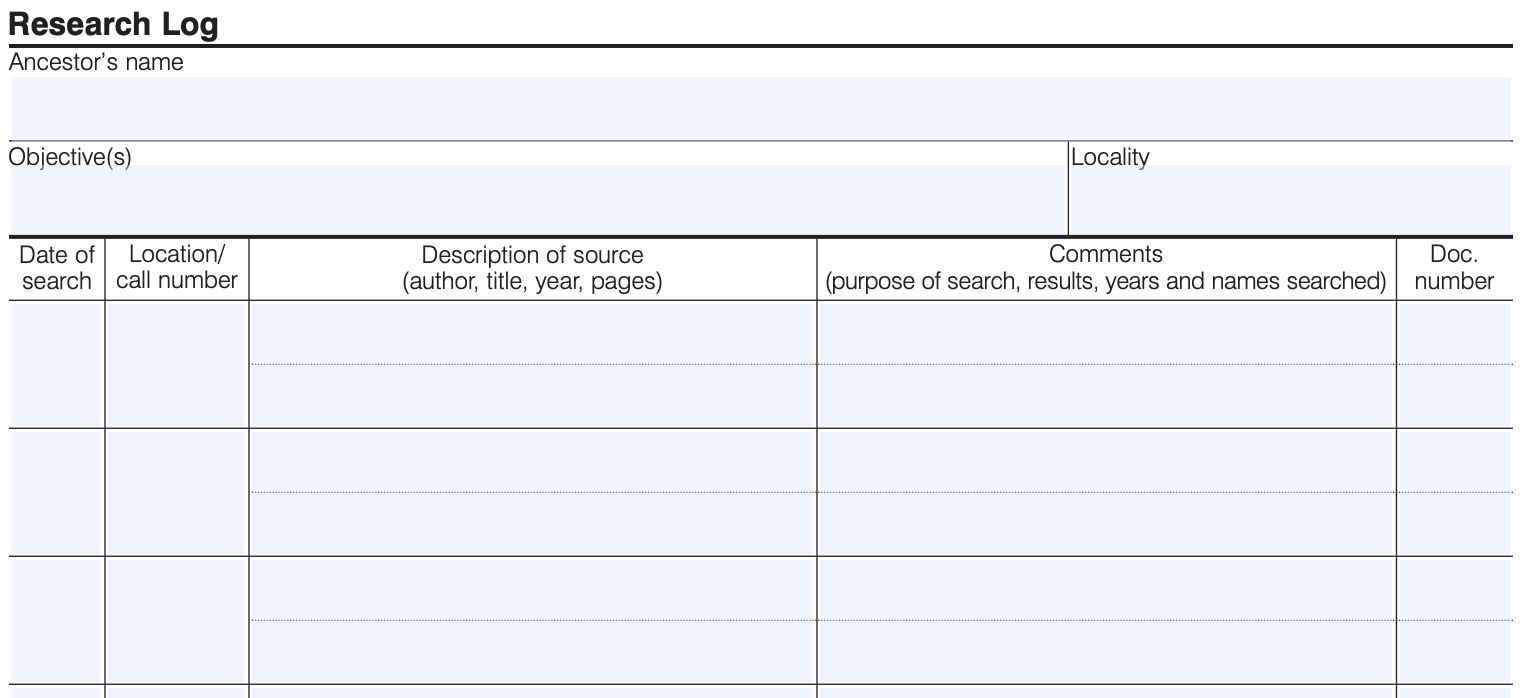Research logs are an important part of genealogical research. We log our searches including any results positive or negative. The log helps us track and reduce our work. We do not want to unnecessarily repeat previous research. This saves the client money. Also, because it is provided to the client along with other documents, it can help with future work, too for the same reasons.
What is a Research Log?
A research log is a comprehensive list of sources you already searched, or plan to search including the purpose of each search (what you want to find), a summary of significant findings and where your copies are, notations showing sources searched where you found nothing, and plenty of comments about your search strategies, suggestions, questions, analysis, and discrepancies.[1]
What Does a Research Log Look Like?
There are a number of templates available online or you can create your own template. The log includes a research question or goal. The log data is typically displayed in a table. In addition to the name of the ancestor you are researching and the stated goal, the columns in the table might include date, reference whether a document number or NIL meaning nothing was found, goal of the specific search, source searched, repository searched, any findings, and a result which should include a citation if a document was found. Here is a sample provided by FamilySearch.
Tracking searches keeps you from repeating your work. The log also helps find documents very quickly anytime you need them. Citations / tracking links, etc. are kept in the log. Having them there also makes is quicker to cite sources when writing up reports.
It is important to be diligent in your showing your work with tracking/logging. Each column for which your search has data should be filled in where appropriate. It takes focus and discipline to maintain a research log, especially if you have not done it before. Some genealogists and other family history researchers suggest that a log is not important. Often they find themselves doing the same searches sometimes years later because there is no log of prior work. Or sometimes they fail to check the log or pass it on to the next researcher.
Automated Research Log
It is not unusual for log to go overlooked or forgotten. Some people say it isn’t necessary, especially when using genealogical software for your research. But, if you are using genealogical software such as RootsMagic, there is often a mechanism that can make creating a research log much more efficient than using a word processing document or spreadsheet. In fact, it is almost automatic. For example, RootsMagic 7 and earlier directly supported a research log. All of the data fields needed were presented as fields in the log window. You could just fill them in, and then generate the report. As of the release of RootsMagic 8 to do lists support the research log functionality. During research you will probably use the to do list anyway. But just creating and populating a to do list, providing the searched data and other information on it, you are maintaining your research log. When you need the log, one can be generated in a few clicks.
Conclusion
Maintaining a research log takes focus. The act of logging however, also helps trim out unneeded data and therefore brings focus to the important data. Logging shows your work and prevents duplication of work. With a little practice and discipline, you will develop a routine that will certainly prove very beneficial to your work flow.
Let us know if we can help you
If you need any help finding your ancestors, just let us know.
Sources
[1] Research Logs, FamilySearch.org https://www.familysearch.org/en/wiki/Research_Logs


